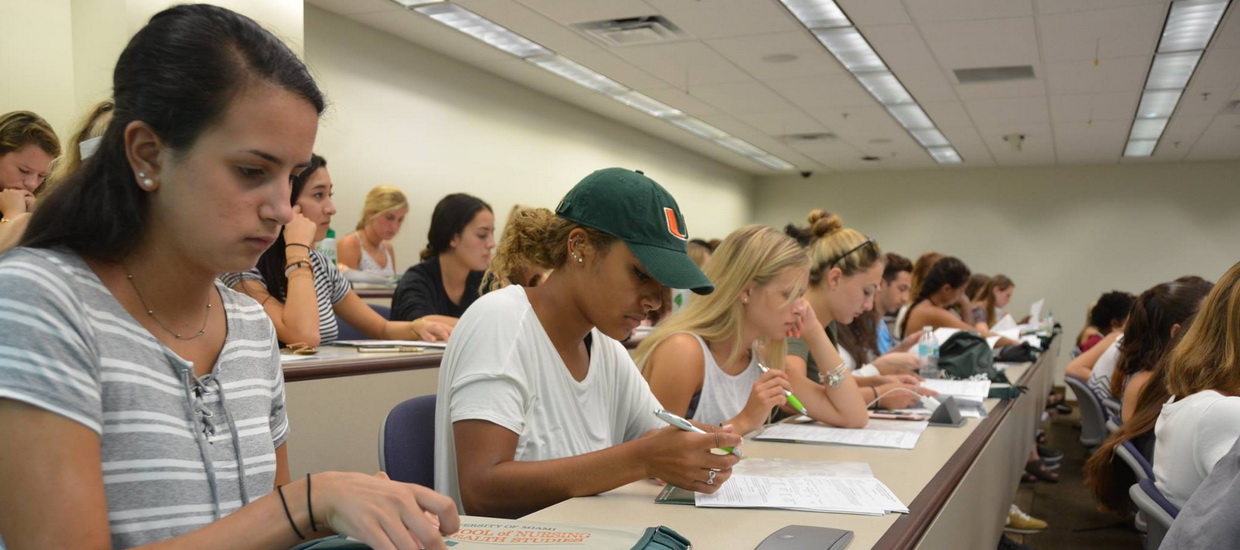1. Are clinical hours required and how are they fulfilled?
- A minimum of 560 clinical hours is required:
- NUR 676 Professional Practice Development Experience Practice Immersion I: 1 lecture credit plus 2 clinical credits (112 clinical hours)
- NUR 688 Health Systems Development and Leadership Experience Practice Immersion II: 1 lecture credit plus 3-11 clinical credits (168-608 clinical hours)
- NUR 672 DNP Scholarly Project Seminar I: 1 lecture credit plus 2 clinical credits (112 clinical hours)
- NUR 673 DNP Scholarly Project Seminar II: 1 lecture credit plus 2 clinical credits (112 clinical hours)
- NUR 659 Technology in Health Care 2 lecture credits plus 1 clinical credit (56 hours)
While students may complete their practice immersion or scholarly project experiences at their place of employment, they cannot count their normal work hours for their clinical hours. The clinical experience hours must be conducted on personal time and devoted exclusively to fulfilling the degree requirements.
2. For what types of professional activities are DNP students prepared?
Nurses who are DNP prepared will assume leadership roles across the health care spectrum. The UM DNP program prepares nurses to create, administer, and evaluate practice interventions and systems for health care, with a focus of reducing health care disparities. Graduates are experts in nursing practice, focusing heavily on evidence-based practice innovations and reflecting the application of credible research findings.
3. What is the scholarly project?
Students are required to demonstrate mastery of expert practice knowledge by completion of a scholarly project, conducted over the last 2 semesters. This scholarly project requires students to apply theory, supported by evidence and expert knowledge of nursing practice, in completing a scholarly project of the student’s or agency’s choice. We partner with community agencies and health care organizations who have a need for a practice change initiative. Students design and implement a practice change initiative under the direction of a faculty member and preceptor. DNP students write a report of the experience, detailing the process and an evaluation of the project at the time of completion of the second semester.
4. What happens if I miss one of the long weekends or can’t stay for the entire weekend?
To pass a course, students must be in class during the long weekend according to the hours it is scheduled. If a course is missed or not passed, a student must wait until following year when it is offered again to take it and must pay for it again at the University’s per credit hour tuition rate.
5. What if I only want to take a few courses at a time?
We recommend you consider the two-year plan of study.
6. Do I need to take the GRE to be considered for the DNP program?
GRE scores are not required for admission to the DNP.
7. The DNP is a relatively new degree. Where can I go to find more information?
We suggest that you visit the AACN’s website at: http://www.aacn.nche.edu/DNP/





